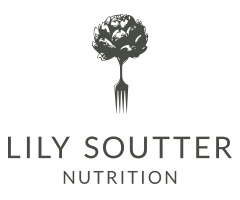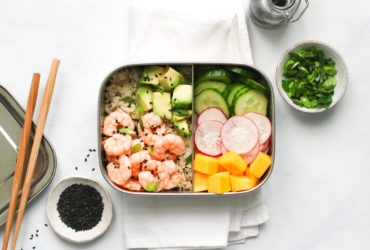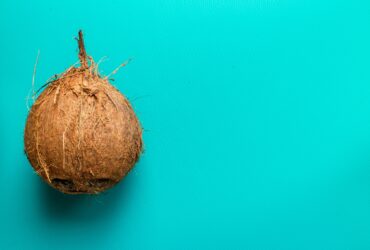Times are changing with more and more people turning vegan. In fact, did you know, it now gets 3 times more interest than ‘vegetarian’ and ‘gluten-free’ searches on Google? What’s more, the search term ‘vegan diet’ has quadrupled within years 2012 and 2017.
If you’re making the switch to a plant-based diet, then these are the key nutrients to consider to make veganism work for YOU:
Vitamin B12
Vitamin B12 is an essential nutrient with the main source being animal products, therefore those following a vegan diet would need to supplement with this nutrient to ensure that they are consuming sufficient amounts.
Vitamin B12 is especially important for the formation of blood as well as brain function. A deficiency in this critical nutrient can manifest as anaemia, which will result in fatigue, numbness or tingling, forgetfulness and much more.
Omega 3 Fats
These fats are primarily found in oily fish and are essential for both brain and heart health. They line every cell membrane within the body and play a positive role in depression, anxiety as well as inflammatory conditions. In comparison to oily fish, there are very small amounts of omega 3 fats found in plant-based foods. The omega 3 oils found in plants also need to be converted to the active form however, the conversion rate is inefficient. This means that you would need to eat a whole load of flaxseeds just to receive a fraction of the omega 3 oils that you find in oily fish.
To obtain a sufficient amount of omega 3 fats, a daily dietary intake of ground flax seeds, flaxseed oil, chia seeds, chia seed oil or walnuts is essential. Omega 3 fats are also found in micro algae, which can be taken in supplement form.
Iron
Heme iron is a specific type of iron, which is only found in meat and fish and has a much greater bioavailability in comparison to plant-based non-heme iron. The absorption of plant-based non-heme iron can also be blocked by anti-nutrients called phytic acid, which means that those following a vegan diet have a greater risk of developing anaemia.
When embarking on a vegan diet, it is important to include adequate amounts of iron-rich plant-based food like legumes, quinoa, tofu, tempeh, pumpkin seeds, and dark green leafy vegetables such as spinach and kale. What’s more, by consuming vitamin C rich fruit and veg or taking vitamin C supplements at meal times, it can also increase the absorption of iron by fourfold.
Iodine
Iodine is an essential mineral required for thyroid health but is also particularly important during pregnancy and breast-feeding for brain and intellectual development.
A major source of iodine comes from cow’s milk but can also be found in fish and seafood, this is why it is important to ensure that your plant-based milk is fortified with iodine. Whilst seaweed is a rich source of iodine, levels can be variable with some types providing levels which are simply too high. Therefore seaweed should be used sparingly and referring to the nutrition label on the package for guidance is a must. Those who are pregnant and have thyroid problems should limit the intake of seaweed and seek guidance from a health professional before consuming. A more accurate way to ensure iodine intake is sufficient would be to supplement.
Calcium
If following a whole food vegan diet, sufficient calcium can be achieved within the diet. Focus on dark green, leafy vegetables which are also rich in magnesium and can aid with the absorption of calcium. Other calcium sources include fortified cereals, bread, soy yoghurt, and calcium-enriched milk alternatives.
Protein
Each protein molecule is made up of several essential amino acids, and protein from animal sources contains this full range of amino acids. However, protein from plant-based sources either do not contain all essential amino acids or provide them in varying amounts. However, if two foods that contain the plant-based protein are eaten in combination, for example, lentil curry with rice, you are more likely to get a sufficient range of amino acids to create a complete protein.
It’s therefore essential for vegans to combine plant-based protein sources throughout the day to ensure they receive a wider range of amino acids. [1]
Common Questions:
- How much of these can we get from food and how much needs to be supplemented?
If following a well rounded and balanced plant based diet which includes fortified milks then it is possible to receive most of the nutrients that you need. However vitamin B12 supplementation should be considered as there are no good plant based sources of this nutrient.
- At what point do we know that we’re insufficient in a particular vitamin? Should we be taking multi-vitamins just in case?
A simple blood test can determine if iron and vitamin B12 levels are low. A multivitamin may or may not be necessary as this depends on if the individual is following a well rounded balanced vegan diet. Guidance from a health care professional should be sought to determine if a multi vitamin would be suitable.
- Are there any supplements (specific brands) that you do recommend and if so, why?
Hello Day’s Heart + Brain Maintain is one of the few vegan sources of omega 3 fats. This supplement is produced from algae oil.
REFERENCES
Lily is a London Nutritionist who graduated from Newcastle University with a BSc (Hons) degree in Food and Human Nutrition (AfN accredited) where she was awarded the Sage Faculty for Excellence Scholarship on an annual basis. She then went on to complete a 2-year post-graduate Diploma in Nutritional Therapy and is currently working towards her MSc in Nutritional Medicine (AfN accredited) at the University of Surrey. Lily’s extensive knowledge of the science of food and health, enables her to regularly write for The Times, The Telegraph, The Daily Mail, The Independent, Women’s Health and Cosmopolitan.
Her frequent TV appearances include ITV’s This Morning with Holly Willoughby and Phillip Schofield, and ITV’s primetime series Save Money: Lose Weight with Dr Ranj Singh. Lily’s passion is to simplify the science around nutrition, to provide health hacks and smarter eating strategies to empower people to enjoy a healthy and successful lifestyle. Her specialities lie in workplace wellness, implementing nutrition-focused wellbeing programmes within corporate organisations across the UK.
Lily also sees individual clients from her clinic in Chelsea and a private medical practice based in Notting Hill.




I am looking for help in consuming good healthy Vegan food. Seem to be deficient in many vital nutrients
Looking for advice on eating good Vegan diet.